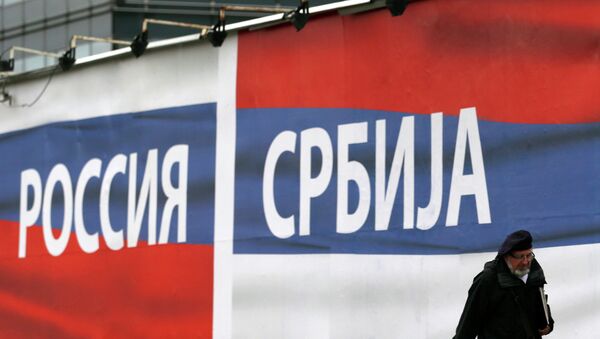MOSCOW (Sputnik) — Belgrade would like to increase the trade with Moscow by many times, Serbian Prime Minister Aleksandar Vucic told Sputnik Serbia.
"We would like to increase the trade with Russia manyfold in 2016," Vucic said.
He added that there were many problems for both Serbian and Russian economies, but the economic situation should improve in 2016.
Serbia and Russia could launch a number of new projects in the construction industry amid tensions between Moscow and Ankara, Serbian Prime Minister Aleksandar added in an interview with Sputnik Serbia.
Moscow's relations with Ankara deteriorated after a Russian Su-24 aircraft was downed on November 24 by a missile fired from a Turkish F-16 fighter over Syria in response to an alleged violation of Turkish airspace by the Russian jet. Russia introduced a set of restrictive measures on Turkey in response to the downing of the aircraft.
"Yes, this issue affects our builders in Russia and Russian building companies here, because we have more and more projects, and two our companies have established joint ventures with Russian colleagues," Vucic said, answering a question whether Serbia could take advantages of Russia's countermeasures against Ankara.
He added that Russian companies could manufacture construction materials in Serbia, while the Serbian ones could do the same in Russia.
The anti-Ankara measures, which come into effect on January 1, include bans or restrictions on the activities of Turkish organizations in Russia, and curbs on Turkish citizens' employment in Russian firms, especially in the construction industry.
Importance of Serbia as a trade partner for Russia increased as this country refused to join western sanctions imposed on Moscow over alleged involvement in the Ukrainian conflict.
According to Russian Foreign Ministry, in 2014, trade turnover between Russia and Serbia saw a 7.6-percent increase compared to the 2013 figure, and Russian exports to Serbia grew by almost 20 percent.




